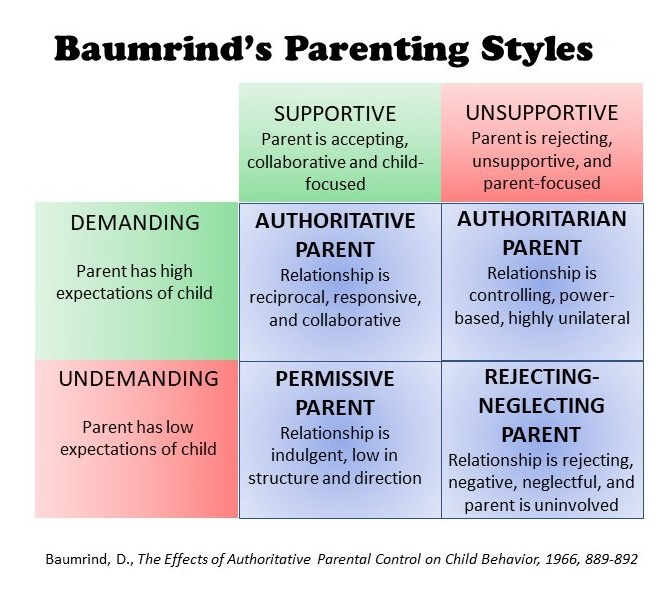Mistakes Parents Make When Dealing with Child Behavior Problems
Christian Counselor Spokane
 It is said that kids don’t come with a user’s manual. But they actually do! Since ancient Rome, theorists have been producing research and writings on best parenting practices that have evolved over time into a quite useful manual indeed.
It is said that kids don’t come with a user’s manual. But they actually do! Since ancient Rome, theorists have been producing research and writings on best parenting practices that have evolved over time into a quite useful manual indeed.
Each child is different, and parenting theory evolves – for the better – but research has shown us that there are common mistakes parents make that can be avoided. There are also tried and true approaches with children that really work, especially if they are started when the child is very young and are continued with parental consistency.
Mistakes to Avoid When Dealing with Child Behavior Problems
Here are a couple of mistakes that can be avoided:
Mistake #1: Authoritarian Parenting
Most parenting-skills programs (some of the better ones include: Triple P, 1-2-3 Magic, and Love and Logic) all steer parents away from something called Authoritarian Parenting.
The acclaimed book, Parenting with Love and Logic wisely calls it “Drill Sargent” parenting because of its militaristic style. Others explain it simply with the well-known phrase and Bible verse, “Spare the rod, spoil the child.” Both give ample depictions of Authoritarian Parenting.
The concept of Authoritarian Parenting was coined by Diana Baumrind, an influential developmental psychologist and researcher who practiced in the 1960’s. Her research is still cited today, and foundational principles that she developed are still used in effective parenting programs.
In her work, Baumrind refers to restrictive parenting, typified by a parent who demands obedience, discourages negotiation and dialogue, and employs strong punishments for unwanted behaviors, or in the words of Love and Logic – a “Drill Sargent.”
 In my years working with difficult, ill-behaved, at-risk, court-involved youth anywhere from 12 to 17 years of age, I started to operate based on a theory I developed that proved true over and over again: the child or teen is rarely the problem.
In my years working with difficult, ill-behaved, at-risk, court-involved youth anywhere from 12 to 17 years of age, I started to operate based on a theory I developed that proved true over and over again: the child or teen is rarely the problem.
In my experience (and it’s a hard pill to swallow for almost every parent, including myself) is that most often the underlying cause of the unwanted or rebellious behaviors – is the parent.
In most cases when I met with parents with difficult children, they had one of three styles: Authoritarian, Permissive (also coined by Baumrind), or Just Gone (parents who were simply too stressed to parent at all). I also learned that any one of these styles could result in severely troubled or rebellious children.
In my years working with this population, I frequently heard phrases like, “My parents raised me this way, and if it’s good enough for me, it’s good enough for my child,” or “As long as they are living in my house, they will do things my way.”
In almost every case of “Drill Sargent” parenting, I noted the kids in the household had a greater chance of unwanted, at-risk behaviors or overly compliant relational patterns that are not helpful in navigating the larger world.
During these years, I had some of the best debates with ex-military parents who literally employed “Drill Sargent” parenting because they experienced the positive effects from it themselves in boot camp.
Given my own history with serving in the Army reserves, I was able to make arguments to parents, encouraging them to reconsider “Drill Sargent” parenting.
My arguments included: First, the average soldier was at least 17 years old.
 Second, there was a difference in brain development between a 12-year-old, for example, and a 17-year-old — a significant increase in their prefrontal cortex, meaning soldiers in boot camp literally had a more developed brain with which to cope.
Second, there was a difference in brain development between a 12-year-old, for example, and a 17-year-old — a significant increase in their prefrontal cortex, meaning soldiers in boot camp literally had a more developed brain with which to cope.
Thirdly, in all the military services, the Drill Sargent phase of training lasts only two months (longer, of course, for elite forces). Finally, soldiers have some key things in place in the boot camp environment that help them cope with the temporary demands of such harsh training. They are surrounded by intense camaraderie, Espri décor, and peer support that is encouraged among new recruits.
Sibling relationships in a family, if unchecked, are set up for rivalry, so camaraderie is a high bar to expect of children in a household. Unless all the children in the neighborhood are subjected to “Drill Sargent” parenting and parents allow maximum exposure to one another (showering, sleeping, eating every meal together) so they can bond, parents simply cannot provide what the military does.
Many parents are afraid to give their children power or to negotiate with them. They fear that if their children are given choices other than the parent’s choice, they are hurting their children: raising them to expect favors, to be soft, spoiled, manipulative, entitled, becoming the dreadful “special snowflake.”
The term special snowflake was popularized by the supposedly indulgent baby boomer generation and their children – the notoriously indulged millennials. Whether research bears out the theory that the baby boomers raised a self-entitled, spoiled generation or not, there are no rational arguments that Authoritarian Parenting is the cure.
Positive parenting concepts like rewards and consequences, natural consequences, parental boundaries, child socialization, choices, and encouraging teamwork are all well-tested skills that discourage the “snowflake” syndrome.
Another reason Authoritarian Parenting doesn’t work is because it sets up an inescapable power struggle between parent and child, literally setting the parent against their child’s normal development, and that is a losing proposition.
Like the famous quote in Jurassic Park by the character – and scientist – Malcolm: “Life will find a way.” Like the rogue dinosaurs breaking free from the confines of an amusement park, youth will find a way to get the empowerment and choice that the parent refuses to give them (often in ways that lack judgement and are ill advised.)
Exploring ideas, developing opinions and values, and forming one’s own unique identity are all tasks of child and adolescent development. All these tasks involve some level of challenging other people’s ideas, especially one’s own parent.
In the authoritarian environment, there are no thoughts or opinions outside the parent’s. Since the tasks of development are hardwired into all children, “Drill Sargent” parenting, by design, sets the parent up to try to control a beast – if you will – that will outgrow its cage.
Mistake # 2: Rejecting-Neglecting Parenting
Baumrind also offered a theory of a parenting style that stands counter opposite to Authoritarian Parenting, and is just as dire a mistake. She called it Rejecting-Neglecting Parenting.
Permissive Parenting is unstructured, inconsistent parenting, where children have free reign to choose activities, rules, and schedules that they are not yet equipped to make. It’s a lax, Laissez-faire method in which the parent is uninvolved and unsupportive.
The parent can be negative and critical, even though they offer little training or support and offer few opportunities for the child to learn. Parents, in this case, do not manage any of their child’s behaviors and require kids to supervise their own actions, yet they expect their children to behave like other children do, sometimes requiring them to act as proxy-adults.
At-risk youth and court-involved children that I worked with were often products of rejecting-neglecting parenting. I noted this type of parenting in affluent, accomplished homes, as well as in homes where parents struggled for their basic needs.
In both cases, the parent’s needs were treated with more urgency and importance than the child’s, and due to the absence of the parent-child relationship, parents were not properly attuned to what their children needed in the first place.
Children in such homes are “latch-key,” expected to raise themselves, and minimally responded to when a crisis for the child arises. Children and teens from Rejecting-Neglecting homes can become just as troubled as those from Authoritarian homes, acting out to ensure some sense of power and/or attention from their parent, or from anyone, in point of fact.
Rejecting-Neglecting parents will boil parenting down into raw provision: earning a paycheck, paying rent, buying groceries, and minimal supervision. The notion that parenting a human being can be done by providing room and board is a grave misconception. Meeting physical needs is simply the base layer in a complex cake needed for a child to develop into a functional, contributing adult.
There are psychological and emotional layers that can leave a child developmentally challenged if neglected, that go far beyond a parent working 9 to 5 and furnishing three square meals a day. A youth must, as mentioned before, develop a self-image, opinions, values, and ideas that are authentically their own, and thoughts and feelings that make them feel positive about themselves.
One of the most important things a parent can provide is a constant mirror, a reflection to the child of their everchanging self, letting them figure it out till it’s finally baked in.
 A child may feel one way one day and another way the next, and an attuned parent will reflect this without judgement, helping their child see pros and cons to the different hats that they try on, allowing the child to make better and better judgements about how they act and who they want to be.
A child may feel one way one day and another way the next, and an attuned parent will reflect this without judgement, helping their child see pros and cons to the different hats that they try on, allowing the child to make better and better judgements about how they act and who they want to be.
One rationalization that I’ve heard from Rejecting-Neglecting parents, include: “Children are fine, and parents should just let them raise themselves.” Other rationalizations include: “I am too busy and stressed to give my children what they need,” and “I work all day to give them a home. They are ungrateful if they need anything beyond that.”
Having basic needs met and having sufficient income, housing, and leisure time for parental self-care are all critical for raising a family. They are best established long before childrearing for successful parental outcomes. That isn’t to say there aren’t good parents who struggle financially. Parents who are constantly stressed, however, with trying to provide for their families, are vulnerable to Rejecting-Neglecting Parenting.
But, as I mentioned, high performing parents are vulnerable as well. Parents who are driven to high-demand, ambitious work at the expense of their children may provide above and beyond, yet have the same results. In both cases, something else is coming before the children, and the parent’s needs come first.
Baumrind’s Parenting Styles have been studied, researched, and used to inform parents for many years, and she lays out two other parenting styles in addition to Authoritarian and Rejecting-Neglecting: Permissive and Authoritative. Her parenting styles were formulated based on two variables – how demanding a parent is (demanding or undemanding) and how supportive a parent is (Supportive or Unsupportive).

The ideal parenting style, based on Baumrind’s research, is something called Authoritative Parenting. Note the subtle difference in the words Authoritarian (or Drill Sargent) and Authoritative (collaborative).
Authoritative Parenting is a style that makes high demands of a child, just as Authoritarian Parenting does, but also provides high support for the child – attention and acceptance of the child’s point of view and individual perspective.
An Authoritative Parent isn’t afraid to allow the child to be empowered. They provide clear structure, but are flexible when the child exhibits a reasonable need to have choices or weigh in on what is happening in the home.
The Authoritative Parent has the “our home” not “my home” approach, wielding their power in a way that affords ultimate respect to the child – maintaining personal boundaries, offering children input, and being collaborative whenever possible.
The Authoritative parent is fully engaged, present, and prepared to keep the child safe. They are demanding, expecting good things from their child without undo punishments when they fail.
The child’s needs are seen as nuanced and requiring something special from the parent, while the parent still acknowledges their own needs and maintains appropriate boundaries with the child.
As parents, we are all faced with our unique, one-of-a-kind, beautiful, wonderful child. They require attention, support, opportunities to learn, and limits. There’s no need for a parent to have to feel alone, or uniquely cursed by difficult behaviors.
So, take off your Drill Sargent hat and grab a book like Assertive Discipline or Positive Parenting, because there’s no shame in needing a user’s manual to raise your child, only in ignoring the ones right in front of you.
“Out for a Stroll,” courtesy of pixabay.com, pexels.com, CC0 License; “Hammock Time,” courtesy of pixabay.com, pexels.com, CC0 License; “Love You More,” courtesy of pixabay.com, pexels.com, CC0 License; “Growing Up,” courtesy of Suleman Mukhtar, pexels.com, CC0 License





